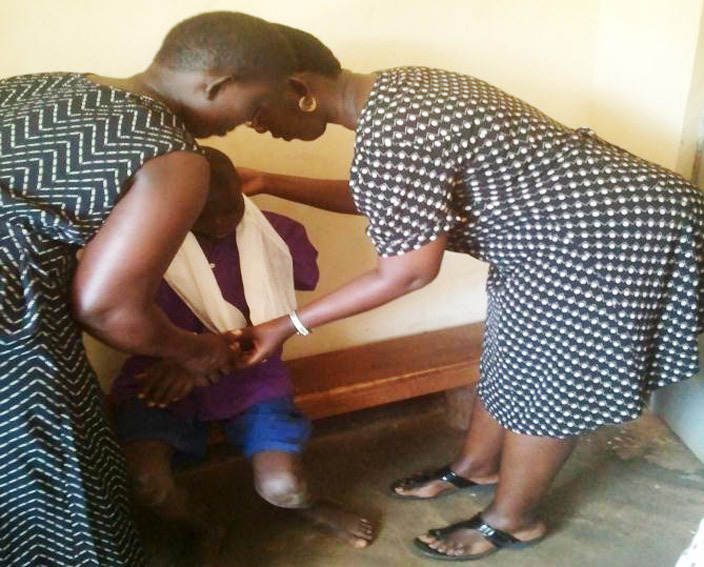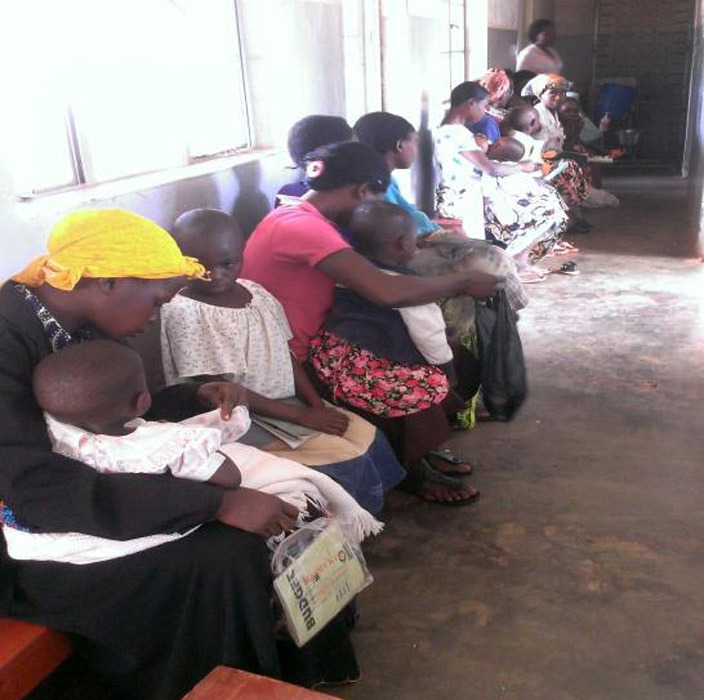When the patients find only queues, not doctors
May 03, 2016
On further investigations, the community members testified that it had always been that way. The health centre had been operating with patients coming early and leaving without being attended to.

It was 11:00am. And the queue had grown long. The waiting area was crowded with mothers and convulsing children. However, no staff was available.
On further investigations, the community members testified that it had always been that way. The health centre had been operating with patients coming early and leaving without being attended to.
This is Mwizi HC IV, in Mbarara. Absenteeism, especially by in charges, is a top cause of disarray in a number of health facilities, due to lack of supervision, according to Julian Nabatanzi, the deputy director of Health Monitoring Unit.
On spot checks by the Health Monitoring Unit at 136 health facilities in 13 districts in Uganda revealed that health workers may be absent from their posts half the time.
According to the 2014/15 annual report from the Health Monitoring Unit the reported reasons for medical workers' absenteeism ranged from; 14.7% attending district meetings, 7% unknown, 5% on leave, 5% others, 5% private engagement, 6% seminar and 2.2% were reported as sick.
 Dr. Atwiine Diana bandaging a patient at Alebtong because there were no medical officers. Photos/ Courtesy
Dr. Atwiine Diana bandaging a patient at Alebtong because there were no medical officers. Photos/ Courtesy
Already, the staffing levels of district hospitals according to Dr Diana Atwiine, the Unit's director, have a big gap of 25%, further compounding the problem.
Mwizi HC IV has 18 staff. On the day of the visit however, none of the staff was present and instead, a volunteer Health Assistant had been left to treat patients.
"It was reported by the patients that only one staff - the Nursing Assistant usually worked. The facility had accommodation for staff however, none were residing in the premises," reads the report.
The director then attended to the neglected patients, before continuing with monitoring of facility.
The facility has a well-equipped maternity department. However, the mid wife rarely works. Therefore, due to non-utilization and poor maintenance of the maternity, the ward is being used as storage for the newly acquired in-patient beds, wheelchairs, and other new equipment while the delivery rooms and equipment looked un-utilized.
Similarly, in Alebtong HC IV, which is well staffed with 46 out of 49 (94%) staff positions filled, absenteeism levels were very high.
By 11:30 am, only five out of the 46 staff (89%) were present and they included a clinical officer, laboratory assistant, nursing officer, records assistant, and the stores assistant.
The acting in-charge was absent together with the two Medical Officers, one of whom had absconded from duty for over six months. The outgoing in-charge, another medical officer had self-diagnosed, indicating that he was suffering from "severe tonsillitis" and thereby needed bed rest.
Further, for five months he had failed to officially hand over to the new in-charge and claimed that he was still working on a handover report.
Most staff were found to be absent because they were attending "mentorship" programs, at the expense of long patient queues waiting for healthcare at the facilities.
On the day of the monitoring visit, more than 50% of the staff at Alebtong HC IV were reportedly away attending workshops while over 200 patients waited to be attended to for hours.
In Amugo HC III, the in-charge had been away all day conducting an environmental health mentorship, and patients who had waited up to 4:00pm were found leaving while in Abako HC III; patients had not been attended to by 3:00pm because all staff were attending a HIV/AIDS training.
This included the porter and laboratory personnel, who confessed that they were doing so because they were bored and not because it was relevant to their scope of work.
Atwiine warns that the healthcare system has laid more emphasis on workshops and so-called "mentorship" with little emphasis on clinical care.
"This paradigm shift is responsible for increased insensitivity to patient care and has attributed largely to public dissatisfaction of healthcare in Alebtong district. And it's sad that a lot of funds are spent on workshops," she told Sunday Vision.
In Serere, absenteeism level of staff in Serere was high according to the on-spot checks conducted in the facilities. Out of the eight HCIIIs and HCIVs the monitoring team visited, in-charges were found present at only 3 (39%) facilities namely; Bugondo, Kyere and Kateeta HCIIIs.
 Patients in queue at Mwizi health center
Patients in queue at Mwizi health center
Dr Julian Nabatanzi, the deputy director at HMU says that absconding from work is the highest form of corruption. "You are receiving the money but not working for it. Some of them say they abscond because the pay is bad, then its better they resign," she says.
She notes that when in charges do not turn up, the rest of the workers may also not appear, and after all, the in charge has no moral authority to question why they have absconded from work, as he also is never there.
"Absenteeism cost a lot, from mismanagement of medicines, stocks outs, breakdown of equipment, but the heads never know these things because they are never there," says Nabatanzi.
Such people, Atwiine says, are just like those officials stealing public funds.
Nabatanzi notes that names of those who abscond from work are taken to the Chief Administrative Officer, and the perpetrators asked to pay back the money from the time they stopped working while government was paying them. Alternatively, they are demoted.
"We suggest that they are transferred to another medical facility but at a lower level," says Nabatanzi.
